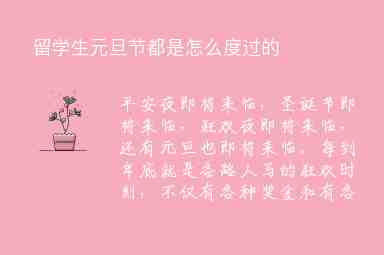blushing是一个形容词,用来形容脸红的状态。它通常指因为某种情绪或局面而导致脸部发红的现象。
怎么读(音标)
blushing [ˈblʌʃɪŋ]
用法
blushing作为形容词,常用于描述人的脸部状态。它可以用来形容因为羞愧、尴尬、害羞等情绪而导致的脸红现象。此外,也可以用来描述一种令人感到惊讶或惊讶的事情。
例句1-5句且中英对照
1. She couldn't help blushing when he complimented her on her new dress. (当他称赞她的新裙子时,她忍不住脸红了。)
2. The little girl was blushing with embarrassment when she had to sing in front of the whole school. (小女孩在全校面前唱歌时感到很尴尬,脸上泛起了红晕。)
3. His cheeks turned red, and he was blushing furiously as he confessed his love for her. (他的脸颊变得通红,当他向她表白时,他非常害羞地脸红了。)
4. The bride was blushing with happiness as she walked down the aisle towards her groom. (新娘走向新郎的时候,脸上洋溢着幸福的红晕。)
5. When the teacher praised her for her excellent work, she couldn't help blushing with pride. (当老师称赞她的出色工作时,她不禁脸上泛起自豪的红晕。)
同义词及用法
1. Flushing: 同样指脸部发红的现象,但更多指因为激动、兴奋或生气而导致的。
2. Rosy: 也可以用来形容脸部发红,但更多指健康、生气勃勃的状态。
3. Red-faced: 同样是形容脸部发红,但更多指因为愤怒或尴尬而导致的。
编辑总结
blushing是一个常用于描述人类情绪和状态的形容词,它可以用来形容因为羞愧、尴尬、害羞等情绪而导致的脸红现象。除了在日常交流中使用外,在文学作品中也经常出现。同时,它也可以用来描述一些令人惊讶或惊讶的事情。与其近义词相比,blushing更加贴近人类情感和心理状态。




